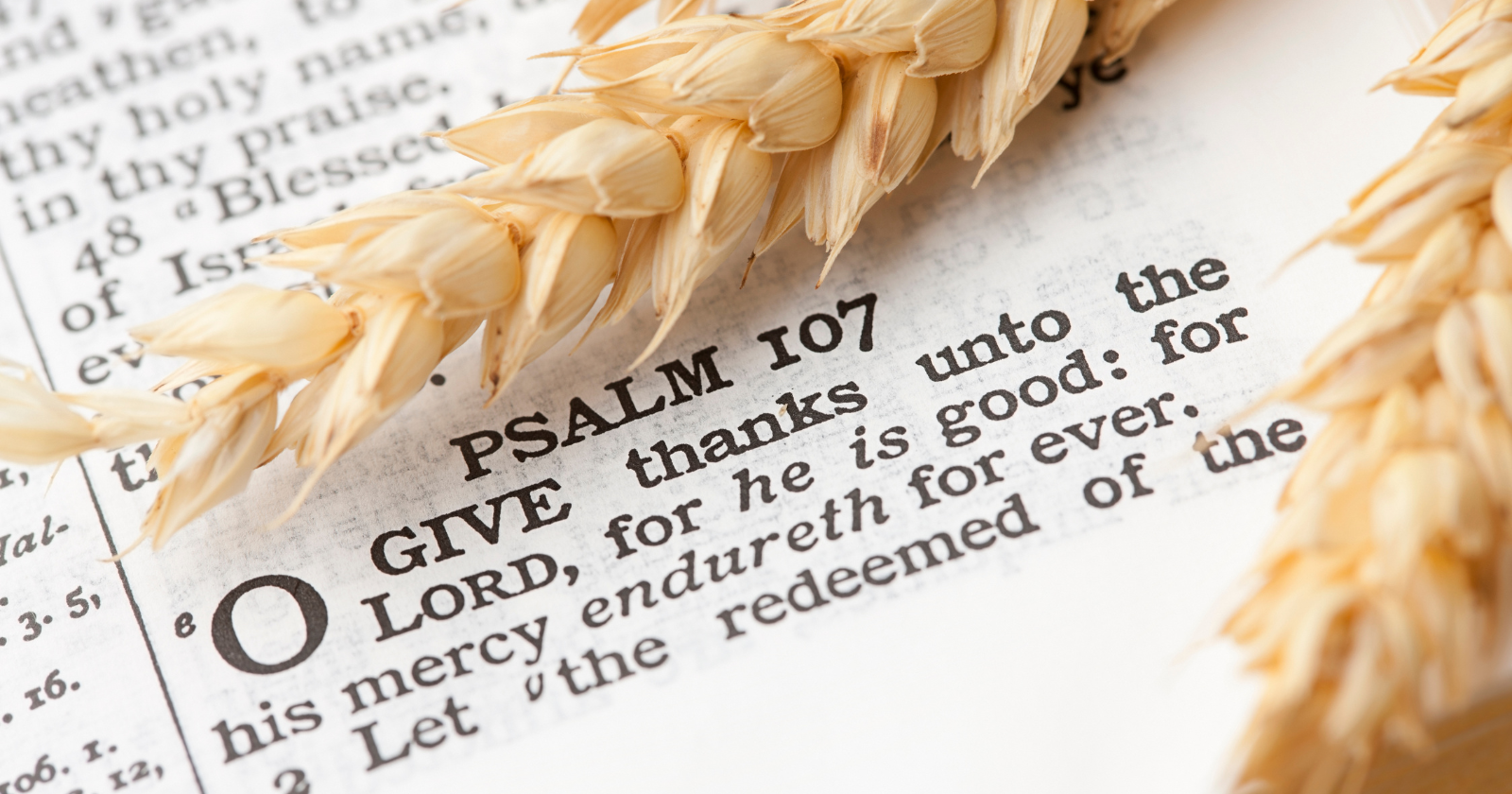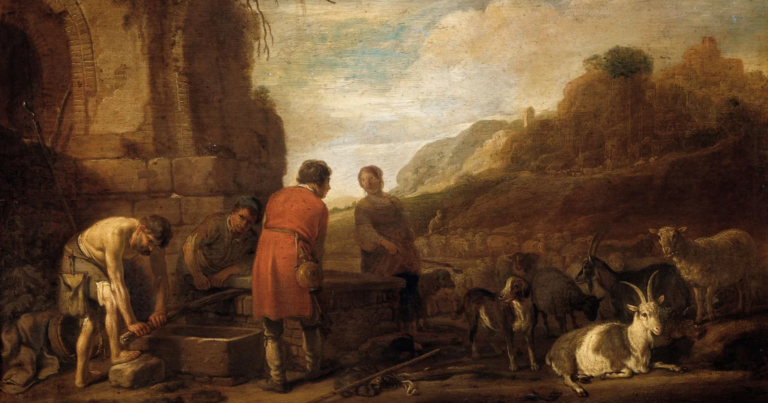“The Lord is my shepherd, I lack nothing.” (Psalm 23:1)
Understanding the Book of Psalms can be a transformative journey.
This ancient collection of songs, prayers, and poems offers deep insights into the human experience and our relationship with the divine.
Even though the Book of Psalms can often feel overwhelming due to its rich and complex content, with the right guide, you can unlock its profound wisdom and apply it to your daily life.
In this article, we will provide a comprehensive overview of the Book of Psalms, focusing on its structure, themes, and key teachings. We will also offer practical tips on how to engage with this biblical text in a meaningful way.
The essence of the Psalms
The Book of Psalms, also known as the Psalter, is a collection of 150 poems and hymns from the Bible.
These texts range in themes from praise, thanksgiving, and trust, to lamentation, wisdom, and even royal psalms.
Each Psalm serves as a voice for individual and communal prayer, conveying profound truths about God and our relationship with Him. They are grouped into five books, each ending with a doxology – a hymn of praise to God.
The structure of the Book of Psalms mirrors the Torah or Pentateuch – the first five books of the Bible.
This highlights its significance within the biblical canon. Its verses offer timeless wisdom, providing guidance for personal spiritual growth and serving as a valuable resource for individual meditation or communal worship.
In essence, the Book of Psalms is not just a religious text. It’s a roadmap for spiritual exploration and personal transformation.
Types of Psalms
The Psalms cover a range of themes and emotions. Therefore, they can be broadly categorized into several types, each serving a unique purpose in the believer’s spiritual journey.
Understanding these categories helps us navigate the Psalms more effectively, offering a lens through which we can explore our own experiences and emotions in relation to God.
1. Laments
These Psalms give voice to the sorrow and petition of the individual or community, expressing deep anguish and pleading for God’s intervention.
They teach us the value of bringing our struggles and doubts before God, reminding us that no cry for help goes unheard.
2. Praise and thanksgiving
These are songs of joy, celebrating God’s mighty deeds and the beauty of His creation. They invite us to recognize and appreciate the many blessings in our lives, turning our hearts towards gratitude and worship.
3. Wisdom psalms
Focused on the pursuit of godly living, these Psalms offer insights into the nature of righteousness, the consequences of sin, and the path to true happiness.
They serve as a guide for moral and ethical conduct, encouraging us to seek wisdom through our reverence for the Lord.
4. Royal psalms
Centered around the themes of kingship, these Psalms highlight the role of the king in God’s plan for His people. They point to the ultimate kingship of Jesus Christ, foreshadowing His reign over all creation.
5. Songs of trust
Finally, these psalms are embedded with deep faith in God’s protection and provision. You can consider these Psalms declarations of the psalmist’s trust in the Lord amidst trials.
They inspire us to place our trust in God’s steadfast love and faithfulness, reassuring us of His presence in every circumstance.
What are the 5 books of the Psalms?
The Book of Psalms is uniquely structured into five distinct books. Each of these books concludes with a doxology or a benediction.
This division mirrors the Pentateuch — the first five books of the Bible, highlighting the Psalms’ integral role in Scripture.
Let’s take a look at the brief overview of each book:
Book I (Psalms 1-41)
This section starts with the iconic Psalm 1, setting the stage with its vivid contrast between the path of the righteous and the way of the wicked.
David’s voice predominates, offering intimate insights into his prayers, struggles, and celebrations. It closes on a note of praise, affirming God’s kingship and faithfulness.
Book II (Psalms 42-72)
Here, the landscape broadens to include the Sons of Korah and Asaph, alongside David, and a touch of Solomon’s wisdom in Psalm 72.
These Psalms navigate the depths of longing for God and the joy of divine deliverance, ending with a heartfelt acknowledgment of God’s enduring reign and justice.
Book III (Psalms 73-89)
Asaph takes the lead, with contributions from the Sons of Korah, David, and Ethan, diving into the sovereignty of God amidst life’s turmoil.
This book grapples with the tensions between divine promises and the reality of suffering.
Finally, it culminates in a doxology that celebrates God’s eternal dominion despite present troubles.
Book IV (Psalms 90-106)
Moses opens this book with Psalm 90, a meditation on God’s timelessness versus human fragility.
What follows is a collection of Psalms that anchor the believer in God’s unchangeable nature, offering solace and stability.
It concludes with a vibrant call to recognize and praise God’s mighty acts and merciful character.
Book V (Psalms 107-150)
The journey ends with a crescendo of praise, featuring the Songs of Ascents, David’s final contributions, and the festive Hallel Psalms.
It celebrates restoration and communal worship, inviting all to join in praising God’s unfailing love and faithfulness.
5 psalms every believer should know
1) Psalm 23: The Shepherd psalm
“The LORD is my shepherd; I shall not want.”
Psalms 23:1-6
“Psalm 23,” often called the Shepherd Psalm, is perhaps the most beloved Psalm of all, offering profound comfort and reassurance in just six verses.
It portrays God as a caring shepherd and a dependable guide, illustrating His provision, protection, and peace.
This Psalm assures us that with God as our Shepherd, we lack nothing.
Even in life’s darkest valleys, His presence is a constant source of comfort, leading us toward eternal dwellings.
Reflecting on Psalm 23 encourages trust and rest in God’s care, reminding us of His endless goodness and mercy.
2) Psalm 51: Prayer for cleansing and pardon
Psalm 51, also known as the Miserere, is a heartfelt plea for God’s mercy and forgiveness.
Traditionally attributed to David following his transgression with Bathsheba, this Psalm is a profound acknowledgment of sin and a yearning for spiritual renewal.
It teaches us about the nature of true repentance, which involves recognizing our wrongdoing, seeking God’s forgiveness, and desiring a pure heart.
This Psalm is a powerful reminder that, despite our flaws, God’s love and mercy are boundless, offering hope and a path to redemption.
3) Psalm 22: A cry of anguish and a song of praise
How many times have you wondered why God seems so far in moments of despair?
Well, Psalm 22 starts with a heart-wrenching question that resonates deeply within the human experience:
“My God, my God, why have you forsaken me?”
These words, echoed by Jesus on the cross, express the depth of feeling abandoned in our darkest hours. Yet, this Psalm evolves from a cry of despair into a testament of trust in God’s deliverance.
It’s a raw and honest portrayal of human suffering and the profound belief that, even in silence, God is present and will rescue us.
4) Psalm 2: The reign of the Lord’s anointed
“Ask of me, and I will make the nations your heritage.”
Psalm 2:8
Psalm 2 presents a majestic vision of God’s sovereignty and the establishment of His anointed king. Amid political turmoil and nations conspiring against divine authority, this Psalm asserts God’s ultimate rule over all.
Believe it or not, it’s not just a declaration of God’s power. Instead, it invites reflection on our response to His sovereignty.
Do we recognize and submit to the authority of God’s Anointed One?
Psalm 2 challenges us to embrace God’s reign in our hearts and in the world.
5) Psalm 110: The priest forever
“The Lord has sworn and will not change his mind: ‘You are a priest forever, in the order of Melchizedek.'”
Psalms 110:4-5
Psalm 110 is a mysterious and profound messianic prophecy, directly quoted in the New Testament to describe Jesus Christ’s eternal priesthood and kingship.
Unlike the temporary and imperfect priesthood of the Old Covenant, Jesus is declared a priest forever, offering a perfect sacrifice for sin.
This Psalm invites us to marvel at the depth of Christ’s work, bridging the gap between God and humanity, and securing our redemption.
How to read and engage with psalms
As you can see, the Psalms are a rich source of comfort, guidance, and wisdom, accessible to believers seeking a deeper connection with God.
By integrating the Psalms into your daily spiritual practice, you can discover new layers of meaning and strengthen your faith.
Here are a few straightforward ways to engage more deeply with these ancient prayers:
- Pray before reading: Ask for understanding and openness to what God wants to reveal.
- Reflect on the words: Consider how each Psalm speaks to your current life situations.
- Write down insights: Journaling can help solidify your thoughts and feelings.
- Use them in prayer: Let the Psalms guide your own prayers to God.
- Discuss with others: Sharing your experiences can enrich your spiritual journey.
Regardless of your strategy of reading psalms, one thing is for sure:
By engaging with the Psalms through these practices, you can deepen your spiritual journey and foster a closer relationship with God.
Conclusion: The Psalms’ timeless relevance
All in all, the Book of Psalms serves as a spiritual companion, providing solace, comfort, and guidance.
It’s a treasury of wisdom that speaks to our deepest emotions and experiences. Reading and reflecting on the Psalms can profoundly enrich your spiritual life.
It’s not just about reading the words but truly engaging with them.
Allow the Psalms to speak to your heart, resonate with your emotions, and guide your prayers.
The Book of Psalms invites us into a deeper relationship with God. It provides a language for expressing our faith, our doubts, our joys, and our sorrows.
So, how do we move forward?
By making the Psalms part of our daily lives.
Read them regularly. Reflect on their messages. Use them in your prayers. Let them shape your worship. In doing so, you’ll discover the Psalms are not just ancient texts but timeless wisdom for today’s believers.











